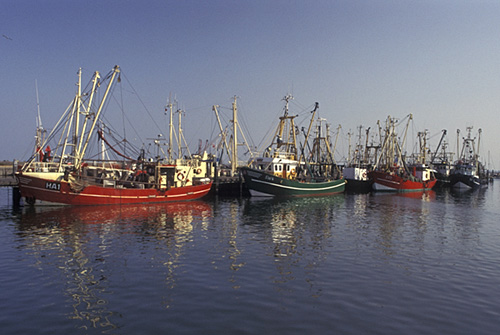In October, Denmark’s National Audit Office, the Folketinget Rigsrevisionen, published a report analyzing the management of Denmark’s allocation of the European Maritime and Fisheries Fund (EMFF). Their findings highlight a general improper management by the Danish Ministry of Environment and Food (in charge of the EMFF at the time, although the policy area of fisheries was subsequently transferred to the Ministry of Foreign Affairs in August 2017), including the need to take some irregularities detected for further investigation by OLAF.
According the findings, the EU point system – applied to fishermen breaching the EU fisheries laws – was not applied correctly, which led to 24% of the examined funding being provided to fishers who would have been excluded from receiving funding had the penalty point system been managed correctly. In addition, the requirements for selection were applied incorrectly or only vaguely, leading to the amount of funding provided being excessive or incorrect in up to 75% of the cases examined. What is more, incidents where applicants and contractors, contrary to the regulations, have been mutually dependent on each other, asked for offers and traded with their own companies, which clearly indicated the “use of front men and fraud”.
The report is one in a series of reports all criticising the management of Danish fisheries. The management has been concluded to be “to close to the industry”. [For the time being, the full version of the report is available in Danish http://www.rigsrevisionen.dk/publikationer/2018/12018/ (here). A summary in English is available http://uk.rigsrevisionen.dk/publications/2018/12018/ (here).
Big fish, small fish
In some regions in Denmark, the fishing industry constitutes a very important part of the local economy. According to the latest available data collected in 2015, the country’s fishing fleet consisted of 2,366 vessels, but less than 600 of these are categorized as “commercially active”. Over 95 % of the enterprises own a single vessel with the rest owning two to five vessels. Small vessels represent 81 % of the fleet. Big vessels longer than 24m represent less than 3% with more that 63% of the total gross tonnage. But the turnover from fishing is uneven divided. Of the 566 vessels categorized as commercially active, there are 200 small scale vessels, 36 % of the fleet, but they only land 5 % of the landing value. 5 % of vessels land 47 % of the landing value (link) In Denmark, there also exists the Danish Fishermen organisation that accepts ship owners as well as employed in the vessels. It was established in 1994 and it is the nationwide organisation for about 50 local fishermen’s organisations.
In 2014, a second national organisation was formed, the Association for Low Impact Coastal Fisheries (FSK). Its members are low impact coastal fishers working in the North Sea and Baltic Sea and committed to fishing in a sustainable way by using low impact gears and techniques that have a reduced impact on the environment. FSK is also a member of the European Fisheries Organization for Coastal Fishermen, LIFE, who works for the interests of coastal fishermen in the EU.
For LIFE, the inadequate and incorrect management of this important financial instrument is unacceptable.
The fishermen are calling for regulations to be followed fairly by all and that transparency is applied in EMFF funds.
As a new EMFF proposal for the period 2021-2027, currently being discussed at EU level, an entire section is devoted to small-scale coastal fishing. More information is available http://lifeplatform.eu/new-european-maritime-and-fisheries-fund/ (here). Now, the case of the EMFF funding in Denmark must be clarified as soon as possible.
The new report comes in the aftermath of a series of reports. All showing a severe mismanagement of Danish fisheries. A report from September this year showed a number of very severe mismanagement cases. On case showed that EU laws to protect juvenile fish was not implemented correct. In one case an area was not closed for fishing even though a sample showed high concentrations of juvenile fish, and therefore should have been closed for fishing in the so called “Real Time Closures” (RTC). After that episode Denmark did not conduct any more samples and hence did not protect aggregations of juvenile fish. There was also a case where a large vessel was granted access to an area despite that fact that only smaller coastal vessels was allowed in that area. (LINK)

